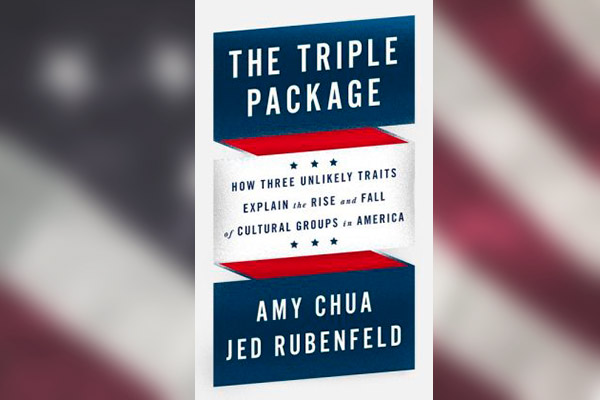Amy Chua’s new The Triple Package seems to build upon the same “Chinese are superior” motto as Battle Hymn of the Tiger Mother — but it’s actually more inflammatory and much less compelling than her last book.
Raw and bordering on naively personal, Battle Hymn of the Tiger Mother sparked a lot of discussion within the Asian American community — and reinforced many stereotypes outside the fold. I ripped through it in less than 24 hours, both horrified and fascinated. The Triple Package (which Chua co-authored with her husband, Yale law professor Jed Rubenfeld) feels like it was written by speechwriters for Marco Rubio, Nikki Haley, and Mitt Romney. It took me nearly a week of on-again, off-again reading to wade through a review copy.
While they never mention politics, there is no mistaking Chua and Rubenfeld’s political leanings. Triple Package could be a playbook of talking points for Republican efforts to portray themselves as the party for bootstrapping immigrant success stories. In a weird only-in-America way, I was reading The Triple Package over Super Bowl weekend, and it struck me that the book is not unlike some of those patriotic commercials: fluffed up with inspirational, feel-good images, but thin on the action points.
Read my full review of The Triple Package at BlogHer


Here is a Canadian reaction: read some of the comments from older adults/teacher. http://www.theglobeandmail.com/globe-debate/amy-chuas-dangerous-ideas/article16750252/ The title is very misleading.
I guess stereotyping and also not. I attribute this reality in various ways:
1) If the parents are poor immigrants (regardless of race), their children either may lose academically due to lack of “resources” OR they will make their children accountable for their wins and failures/transgressions, impress on the importance of education.
I’m sure you know as well as I do: it’s the parent(s) who embed a firm sense of accountability in their children, they praise their children but not every single step. This is after all, real life: an adult is not praised / acknowledged their good work at every step. So the kid must have humility but strong self confidence and good sense of good and bad. Hard work for parents –regardless of family income background.
A sister of mine with 3 children, ages 11-16 yrs., was bemused that her then-14 yr. old son was automatically put in a gifted stream. She didn’t see her son as “gifted” just bright….like herself when she was a child. It was how the school (in a upper middle class neighbourhood) seemed to slightly over-inflate “gifted’ which we traditionally associate with near child prodigy not just very bright. But as the linked article points, some parents over-protecting their teen, etc. and not stepping aside for child be accountable for her/his own errors. Which could result in underachieving children.
I have not read your Blog Her article. I wanted to post here since you have readership that may be intimately interested in this matter…..for a very long. Or have wondered for a long time themselves while growing up.
Thanks for sharing that Globe and Mail article, Jean. Chua did refer to some examples of very low income Asian immigrant groups who exceed all expectations at school. And I do agree with you that often parents are the main driving force behind whether children do well or not. I just think that the book didn’t go into how rare or common this is. Also, one of my big problems with their analysis of Chinese Americans (that I wrote about in the BlogHer article) is that as a group, in studies, they have both the highest academic achievement and also lowest self-esteem and high rates of depression. Yes, I think that working really hard and being expected to achieve a lot can result in success, but it often comes with other prices. Chua and Rubenfeld seem to really value material success and prestige above all else.
Also, your anecdote about your sister’s kids being placed in the gifted program is interesting. From what I’ve understood with my own kids’ school system is that “giftedness” is measured by other variables in addition to academic performance, such as innovativeness, etc. So maybe they identified some of those traits?
Great to hear your thoughts!
“Yes, I think that working really hard and being expected to achieve a lot can result in success, but it often comes with other prices.”
Yes, very true. And the ever challenging thing if a parent pays attention: how to keep children grounded reality without turning them off, still making them feel loved.
As for the gifted school stream for my nephew at his high school: I appreciate recognizing perhaps other traits for “giftedness”. But honest, it’s children who may mature /grow faster in understanding and sensitivity than others. I do think it is helpful for a child to understand extraordinary achievement ..which child prodigy in music, art, certain subjects….plus the fact that these children quite often also work hard to extend their natural, incredible gifts.
It’s better just to stick to very bright/bright academic stream terminology. Otherwise myself and some friends would have ended up misguided using the word “gifted” stream with unrealistic expectations/inflated egos about ourselves after leaving high school.
I just don’t like the term gifted at all. Too elitist, inaccurate and …not fair to the low-income child whose parents lack resources for special interest courses, etc.